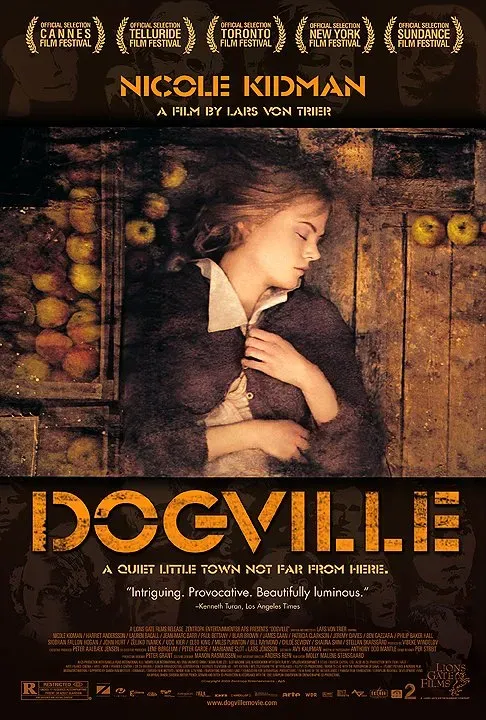Dogville (2003)

Dogville (2003) is a stark, stage-like crime drama that plays out like a moral experiment. When Grace (Nicole Kidman), a glamorous fugitive, turns up in a tiny Colorado mountain town, the locals — led by the earnest Tom (Paul Bettany) — reluctantly agree to hide her in exchange for work. What begins as an uneasy pact slowly unravels into a brutal study of power, hypocrisy and the price of “goodness.” The film’s unusual, minimalist production — interiors suggested by chalk lines and a deliberately sparse set — strips away cinematic artifice and forces attention onto performance, dialogue and moral choices. The story is told in chapter-like sections and unfolds as a slow burn: initial warmth and compassion give way to creeping demands, escalating exploitation and, ultimately, a shocking reckoning. Grace’s hidden background and the town’s willingness to rationalize cruelty push the narrative into increasingly darker territory. Watching Dogville is an intense, sometimes uncomfortable experience. Viewers should expect long, theatrical scenes, moral ambiguity rather than clear answers, and an ending that confronts you with violence and philosophical provocation. It’s emotionally demanding and deliberately provocative, designed to make you question compassion, complicity and how quickly civilized behavior can collapse. If you appreciate performance-driven films, bold formal choices, and stories that challenge your assumptions rather than console them, Dogville will be gripping and thought-provoking. If you prefer lighter, straightforward entertainment, its slow pacing and bleak themes may feel punishing. Either way, it’s a memorable, confrontational film that lingers long after the credits.
Actors: Nicole Kidman, Paul Bettany, Lauren Bacall
Director: Lars von Trier
Runtime: 178 min
Genres: Crime, Drama
![]() 7.5
/10
7.5
/10
61
/100
8.0
/10
![]() 7.2
/10
7.2
/10